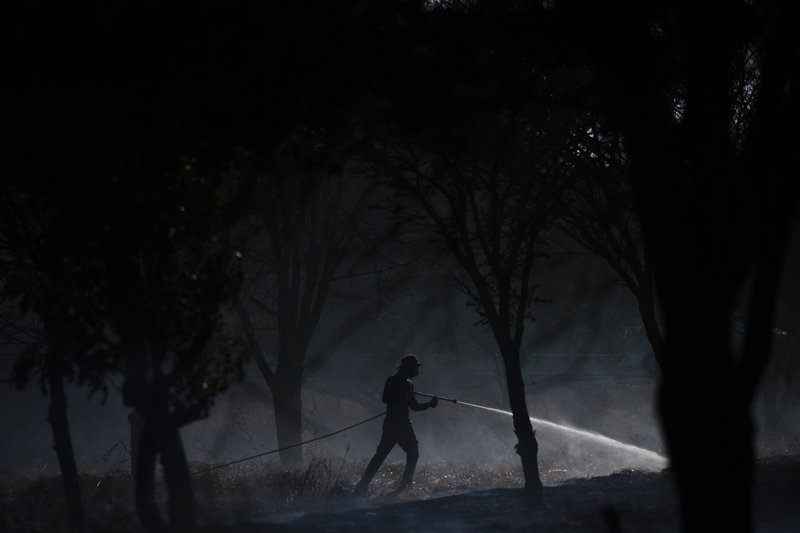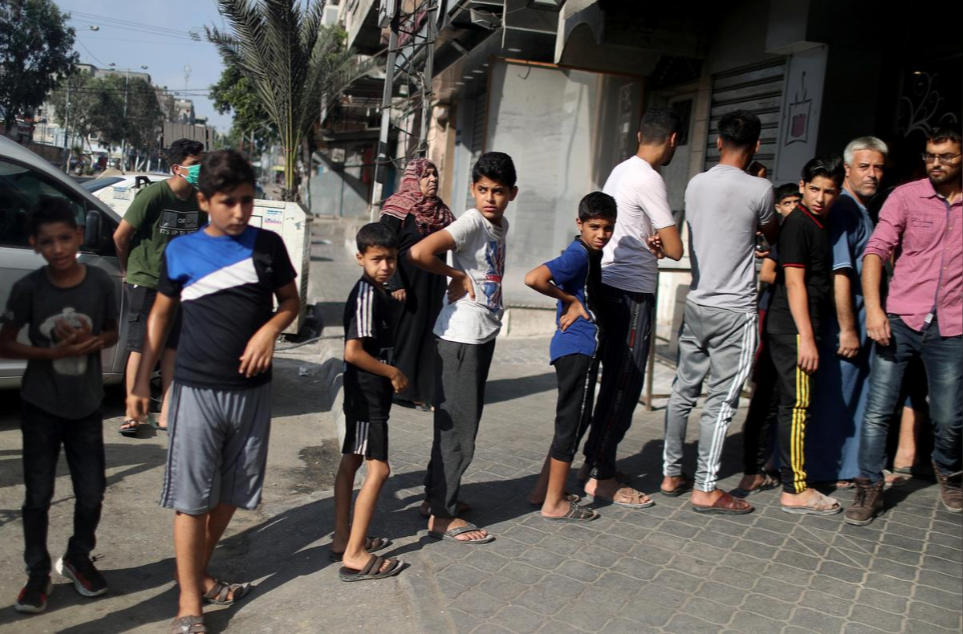
A volunteer attempts to extinguish a fire started by a "fire balloon" launched from the Gaza Strip, on the Israeli side of the border, August 24, 2020. /AP
A volunteer attempts to extinguish a fire started by a "fire balloon" launched from the Gaza Strip, on the Israeli side of the border, August 24, 2020. /AP
A Qatari envoy arrived in the Gaza Strip late Tuesday seeking to ease the Israel-Hamas tensions that have led to frequently bombings and deteriorating economy in this region.
Mohammed el-Emadi arrived with 30 million U.S. dollars to help the territory of two million people, half of whom live under the poverty line, sources close to the envoy told AFP.
He was expected to meet Hamas officials during the night.
Israel has bombed the Hamas-ruled enclave almost daily since August 6, in response to airborne incendiary devices, called "fire balloons," which are widely seen as an attempt by Hamas to improve the terms of an informal truce under which Israel committed to ease its 13-year blockade in return for calm on the border.
But so far Israel's response has been to tighten the blockade. It has banned Gaza fishermen from going to sea and closed its goods crossing with the territory, prompting the closure of Gaza's sole power plant for want of fuel.
As a result, the Gaza Strip has had electricity, from the Israeli grid, for less than four hours per day.
Qatari delegation sources said the Israeli side had told El-Emadi that it is prepared to allow the power station to refuel and to lift its blockade in exchange for a return to calm and an end to the incendiary balloons.
Deteriorating situation
The security situation in Gaza has recently deteriorated, a trend which may soon become irreversible, the UN Special Coordinator for the Middle East Peace Process Nickolay Mladenov warned on Tuesday.
Militant activity, incendiary balloons, rockets and a deteriorating humanitarian situation inside Gaza are rapidly eroding peace efforts, he said.
This latest escalation has once again demonstrated the urgency of implementing long-term solutions for Gaza. There is a moral imperative to end all militant activity in Gaza, restore Palestinian national unity and lift Israeli closures, he said.
"But the political solutions that must be provided by leaders are nowhere in sight. Instead, we have a day-to-day, month-to-month, year-to-year patchwork of crucial humanitarian efforts to prevent war and to try and sustain the lives of two million desperate Palestinians in Gaza."

Palestinians queue in front of a bakery store waiting to buy bread during the lockdown after Gaza reported its first coronavirus infections, in Gaza city, on August 25, 2020. /Reuters
Palestinians queue in front of a bakery store waiting to buy bread during the lockdown after Gaza reported its first coronavirus infections, in Gaza city, on August 25, 2020. /Reuters
During the past months, Gaza's economy has deteriorated dramatically.
The latest ceasefire deal would provide some economic relief in the impoverished territory where unemployment exceeds 50 percent, stipulating a monthly aid payment from Qatar of 30 million U.S. dollars until the end of next month.
The truce also provides for permits for Gazans to work in Israel and financing for Gaza development projects.
However, the COVID-19-related restrictions have halted the crossing of workers and traders into Israel and inhibited revenue transfers to Gaza's exporters. The current absence of cooperation between the Palestinian Authority and Israel in response to the threat of annexation has also slowed implementation of critical infrastructure projects and led to job losses, said Mladenov.
In the occupied West Bank, including East Jerusalem, clashes between Palestinians and Israel continued. Amid the COVID-19 crisis, there has been a concerning increase in violent crime within Palestinian communities across the West Bank, as well as violent incidents involving Palestinian Security Forces and civilians, with several people shot dead in recent weeks.
Palestinian organizations focused on gender-based violence in the West Bank have also reported a sharp increase in femicides, he said.
"Gaza is teetering on the brink of another major escalation with Israel, the occupied West Bank is fracturing under a multitude of economic and political pressures, settlement expansion and demolitions continue, and the COVID-19 pandemic continues to have a devastating impact on Palestinian and Israeli societies," he added.
(With input from agencies)